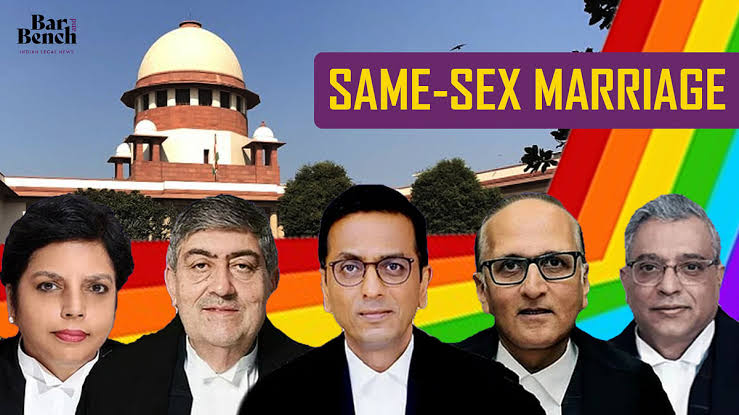Law and custom: On the Supreme Court’s verdict on same-sex marriage
Court verdict leaves queer people with long struggle ahead for equality
The Supreme Court of India’s refusal to accord legal recognition to marriages between persons of the same sex is a huge legal setback to the queer community in the country. Given the progress in law in recent years and the deepening of the meaning of individual rights, there was widespread expectation that the five-judge Constitution Bench would give the Special Marriage Act (SMA), a law that allows any two people to marry, a gender-neutral interpretation to include people belonging to the same sex. Over the years, the amplitude of Article 21 of the Constitution has been expanded to cover the rights of privacy, dignity and marital choice, but the highest court has stopped short of the extra step needed to allow marriages or civil unions that are not heterosexual . All five judges have chosen to leave it to the legislature to enact such a law. Chief Justice of India D.Y. Chandrachud and Justice Sanjay Kishan Kaul have ruled that queer couples have a right to seek recognition for their union, but declined to read-down the provisions of the SMA to that effect . On the other hand, Justices S. Ravindra Bhat, Hima Kohli and P.S. Narasimha reject the position, holding that any such recognition can only be based on statute . In-effect , the Court has accepted the government’s view that any move to legalise same-sex marriages will fall in the legislature ’s domain .
In concluding that there is no fundamental right to marry, the Court has negated the expectation that it would not allow discrimination against same-sex couples in the marital domain to continue. Marriage is indeed a social institution, with its own legal requirements and conditions for what constitutes a valid marriage. The right to seek social and legal validation through marriage is a matter of individual choice protected by the Constitution, but the Court still views it as being subject to statutory limitations . The majority disfavours the position that queer couples have a right to adopt children, but agrees with the minority that there is no bar on transpersons entering into heterosexual marriages. There is no disagreement among the judges about the right of such same-sex couples to cohabit and be free from coercion and threats. Given that large sections of India may be opposed to the legalisation of same-sex marriages on religious and cultural grounds, the possibility of Parliament taking the initiative to do so is quite bleak . The LGBTQIA+ community may now have to take-heart from the Court’s direction that the government should form a committee to decide the rights and entitlements of queer couples. The community, however, still has quite a struggle ahead before the law catches up with its yearning for equality.
